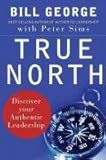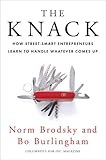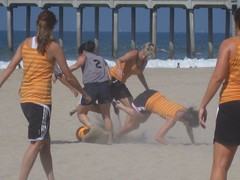 What’s your story? That is the question covered by the first chapter of True North: Discover Your Authentic Leadership. I’m covering each of the exercises that follow the chapters of this book.
What’s your story? That is the question covered by the first chapter of True North: Discover Your Authentic Leadership. I’m covering each of the exercises that follow the chapters of this book.
The True North exercises:
- Introduction Exercise
- Chapter 1: Your Story Exercise
- Chapter 2: Losing Your Way Exercise
- Chapter 3: Your Greatest Crucible Exercise
- Chapter 4: Knowing Your Authentic Self Exercise
- Chapter 5: Practicing Your Values and Principles Exercise
- Chapter 6: Your Motivations and Motivated Capabilities Exercise
- Chapter 7: Building Your Support Team Exercise
- Chapter 8: The Integrated Leader Exercise
- Chapter 9: The Purpose of My Leadership Exercise
- Chapter 10: Empowering Other Leaders Exercise
- Chapter 11: Honing Your Leadership Effectiveness Exercise
Discover Your Leadership in Your Life Story
During your early years, which people had the greatest impact on you?
My parents and teachers had the greatest impact on me. Both of my parents are in leadership positions, though each varies significantly in leadership style. Their range has taught me to consider a range of techniques for any given situation.
A handful of teachers also made an impression, such as my fifth-grade teacher and her weekly Poor Richard’s Almanac quotes (“An ounce of prevention is worth a pound of cure”, “A penny saved is a penny earned”, “In this world nothing can be said to be certain, except death and taxes”, etc). I love quotes, those little nuggets of wisdom. Perhaps that love originated from fifth-grade.
Starting with your earliest memories, which experiences marked turning points in his life?
There were many. First, I was a quiet, introverted kid. Then a series of fortunate events evolved me into, surprisingly, an extrovert. The change has been so striking that I sometimes wonder if my true nature is to be an extrovert and my childhood environment nudged me into being an introvert. (Not that there’s anything wrong with being an introvert. Extroversion and introversion are merely where you get your energy and place your attention – from other people or from yourself.)
Once that foundation was set, my first true taste of leadership came in college. In my junior year, I became the public relations officer of a student-run community service organization. Then its president in my senior year. Leading a team of intelligent type-A officers and student volunteers like myself was a remarkable experience. I had to learn how to deal with my weaknesses, hone my strengths, delegate, communicate effectively, motivate officers and volunteers already swamped with school work, coordinate social events, and grow the organization.
The next turning point was becoming an engineering manager at Yahoo! (YHOO). At the peak of this role, I managed a small organization of 22 developers and first-line managers. The experience allowed me to hone a set of management techniques & principles that have become my management style.
The latest turning point has been launching WebMocha, where my leadership role evolved from leading teams to leading a company with business partners. In this role, I was fortunate to find partners who complemented my strengths and weaknesses, and I theirs. A whole new set of leadership behaviors had to be refined here, such as managing workers, dealing with client projects, winning the hearts and minds of prospective clients, managing finances, working towards profitability, etc.
There was also another significant turning point – a nearly fatal accident while skydiving. That profound experience taught me to appreciate life and view it graciously. It’s also made me realize the importance of being myself, of being authentic. Because when I’m on my death bed, what do I want to be proud of: having lived my life as someone else or having lived my life as myself?
In which experiences did you find the greatest inspiration and passion for leadership?
Any instance where someone in my team achieved greatness, success, recognition, or reached his/her own goals has been inspirational. I was fortunate enough to experience this over and over again while at Yahoo! The high I received was way better than any drug, lemme tell ya.
Looking at patterns from your early life story, what people, events and experiences have had the greatest impact on you and your life?
These questions are a bit redundant, huh? My parents and teachers had a significant impact on me. As did the events I described in the last two questions.
Can you identify instances where you were dissatisfied with your leadership or received constructive feedback from others about it?
There are a few poignant moments at Yahoo! that I regret. Having 22 members meant being responsible for evaluating the performance of many direct reports. That was more than I could handle. Arguably, it’s more than anyone could handle. As a result, some of the members I didn’t know as well didn’t get fair & accurate performance evaluations.
In one case, I had a developer with great potential, provided he had the proper guidance. Unfortunately, there were too many other priorities at the time. When review time came, he was dissatisfied with his evaluation and didn’t feel like he was working to the best of his capabilities – which was absolutely true. He ended up leaving my team and becoming a senior developer on another team. Thankfully, he was able to reach his true potential there, unlike in my team, where I feel like I failed him.
Has there been an instance in your life where you felt like a victim?
Nope. I’ve always felt that I have control over my life. The bad situations I’ve gotten into are my fault, and it’s my fault if I don’t learn from them.
Do the failures or disappointments you experienced earlier in your life constrain you, even today, or have you been able to reframe them as learning experiences?
They are definitely learning experiences. Fantastic learning experiences too. While some past experiences were very unpleasant, they’ve made me who I am today and I’m happy with who I am today. After all, “we remember some of what we are told, a little more of what we read, and almost all of what we experience.”
The Journey to Authentic Leadership
Do you currently view your life and leadership as a destination to a certain point or as a journey in which you seek to maximize your learning and experiences?
Life is always a journey. If you reach a goal or destination, then it’s time to set another goal and return to the journey.
The journey can be made much easier if you learn from previous mistakes. Otherwise, you’re doomed to repeat them. I don’t know about you, but I don’t like repeating dumb mistakes over and over again.
What are the most significant leadership experiences you have had to date and what did you learn from them?
The major life turning points I wrote about above are also some of the most significant leadership experiences I’ve had so far. From becoming the president of a student-run community service organization in college, to an engineering manager at Yahoo!, then to the principal of WebMocha, I’ve learned a lot from these wonderful experiences, which I’ve written above too. Cheers to redundant questions.
What experiences do you need to develop your leadership to take it to the next level?
The next step in my leadership education is becoming a successful entrepreneur. Fortunately, I’m already on this path with WebMocha.
If you are just entering a new phase, have you assessed the goals and experiences you would like to have during the phase?
Yes. My goals are sustainable profitability and growth from WebMocha. The experiences I’m going to learn from this journey will be invaluable.
Do you think you need to make any adjustments to your personal and leadership development as a result? If so, what are they?
I will definitely need to make adjustments. My leadership experience has been mainly people-based, as opposed to business-based. While managing a business shares many of the qualities needed to manage people and teams, there are also notable differences too. This is what I will need to learn.
This will include greater reliability on intelligence business managers & leaders in my social network for wisdom & advice. I am fortunate to have a good and varied network. As my schedule eases up, I look forward to meeting with each of them regularly.
How can you take your previous experiences and apply them more optimally to your leadership now?
The failures I’ve had will be an important lesson in the future. I know that being an entrepreneur is difficult and fraught with challenges. Failure is a certainy. Success isn’t.
How would you answer these questions?
The True North exercises:
- Introduction Exercise
- Chapter 1: Your Story Exercise
- Chapter 2: Losing Your Way Exercise
- Chapter 3: Your Greatest Crucible Exercise
- Chapter 4: Knowing Your Authentic Self Exercise
- Chapter 5: Practicing Your Values and Principles Exercise
- Chapter 6: Your Motivations and Motivated Capabilities Exercise
- Chapter 7: Building Your Support Team Exercise
- Chapter 8: The Integrated Leader Exercise
- Chapter 9: The Purpose of My Leadership Exercise
- Chapter 10: Empowering Other Leaders Exercise
- Chapter 11: Honing Your Leadership Effectiveness Exercise

One of my personal favorites in 2009 is The Knack: How Street-Smart Entrepreneurs Learn to Handle Whatever Comes Up
by Norm Brodsky and Bo Burlingham. Brodsky is a veteran entrepreneur and author of the “Street Smarts” column in Inc. Magazine. Burlingham is an author and editor-at-large for Inc. Magazine.



 It was one of those “Oh crap” moments. After a long day of work, I decided to take a dip in the hot tub under the cool evening sky. So anxious was I for that bubbly, refreshing goodness that I forgot about the BlackBerry 8800 (
It was one of those “Oh crap” moments. After a long day of work, I decided to take a dip in the hot tub under the cool evening sky. So anxious was I for that bubbly, refreshing goodness that I forgot about the BlackBerry 8800 (